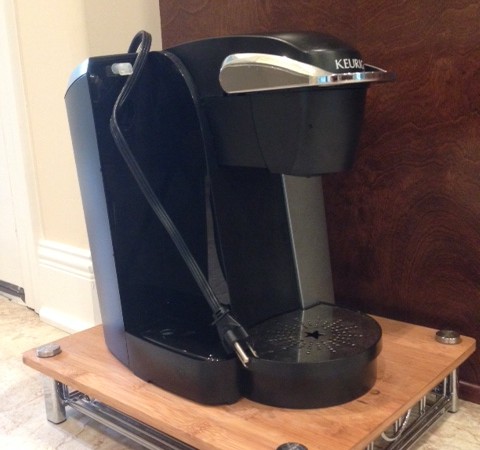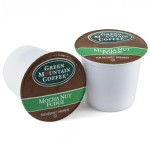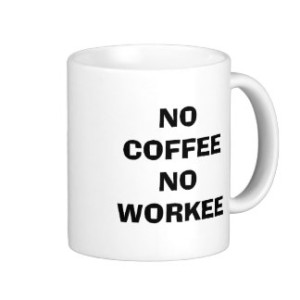Why I Kicked My Keurig to the Curb

Why I Kicked My Keurig to the Curb
September 19, 2014 by Erin Chamerlik, The Real Food Revivalist
We stocked our hot beverage center with a variety of flavored K Cups.
Then that little voice in my head started asking questions
I pushed those concerns away for the sake of convenience (after all, filling my own coffee filter with fresh ground coffee takes all of what… two minutes? I’m a busy person, just like you!).I wondered:
- How fresh is the coffee in a K Cup?
- What toxins am I exposing myself to as the hot water forces the coffee through the little holes poked in the plastic cup?
- What is that lid made of that is poked at the top to allow the water to enter the cup?
- What chemicals are used in the flavored coffee selections?
- Is there a filter inside the plastic cup? What is it made of and how is it secured inside the plastic cup?
Is your Keurig harboring mold and bacteria?
When I packed up my kitchen to move 500 miles south, I wanted to make sure that my Keurig was completely empty and dry before it went on the moving truck. IMPOSSIBLE!Keurig.com states, “Once your Keurig home brewer has been primed, you cannot empty the water from the inside. The internal tank of the brewer cannot be drained.”
The microbiologist in me is disgusted at the thought. Back in the day when I worked in a hospital lab, we emptied all water reservoirs daily or they would grow bacteria and a biofilm could develop. You are familiar with biofilms if you ever cleaned the goo out of a flower vase after the flowers have died. Biofilms are found wherever there is water and a surface to stick to (like your shower curtain).
The rubber tubing and the internal tank of the Keurig cannot be drained. It is possible that bacteria and mold are happily living inside that hidden water tank where it is nice and dark and warm. Another mold-magnet is that black rubber ring on the bottom of the exterior water container. Look now! Is there green or black slime? ewwwww (biofilm!).
Donna Duberg, M.A., M.S., an assistant professor of clinical laboratory science at Saint Louis University said, “Bacteria forms a slick biofilm when grown in moist, dark places, and so do molds.”
No, your coffee bean’s antibacterial action is not enough to kill these microbes that are floating through the system. Duberg said, “There is research which shows that it is only about 50 percent effective in killing bacteria, such as Staphylococcus aureus and Streptococcus mutans, and molds.”
No, your water is not getting hot enough to kill all microbes that are living in your coffee system. For that to happen, the water would need to reach boiling temperature and stay there for one minute. And, for heaven’s sake, wash your workplace coffee mug with dish soap and water. Researchers found that half of workplace coffee mugs were contaminated with fecal bacteria.
Can you clean the Keurig? The first step is to empty out the exterior water tank and look inside the tank. Does it feel slimy? Clean and dry that tank and run a few cycles of diluted vinegar through the Keurig. Good luck with that. One person said, “I could still smell a moldy aroma after doing quite a few vinegar cycles. There were also black floaty things in my cup even when I just brewed hot water.”
Plastic K Cups Conundrum 
The PlasticThe K Cup is a composite plastic, #7. Although this is technically BPA-free the chemicals from the composite plastic are not safe and they still have estrogenic activity. As long as I mentioned fake estrogens coming from the plastic in your K Cup, don’t make a bad situation worse by adding soy milk to your coffee! (Men, would you like “moobs” with your mocha and soy?).
Read More Here


No comments:
Post a Comment
Hello and thank you for visiting my blog. Please share your thoughts and leave a comment :)